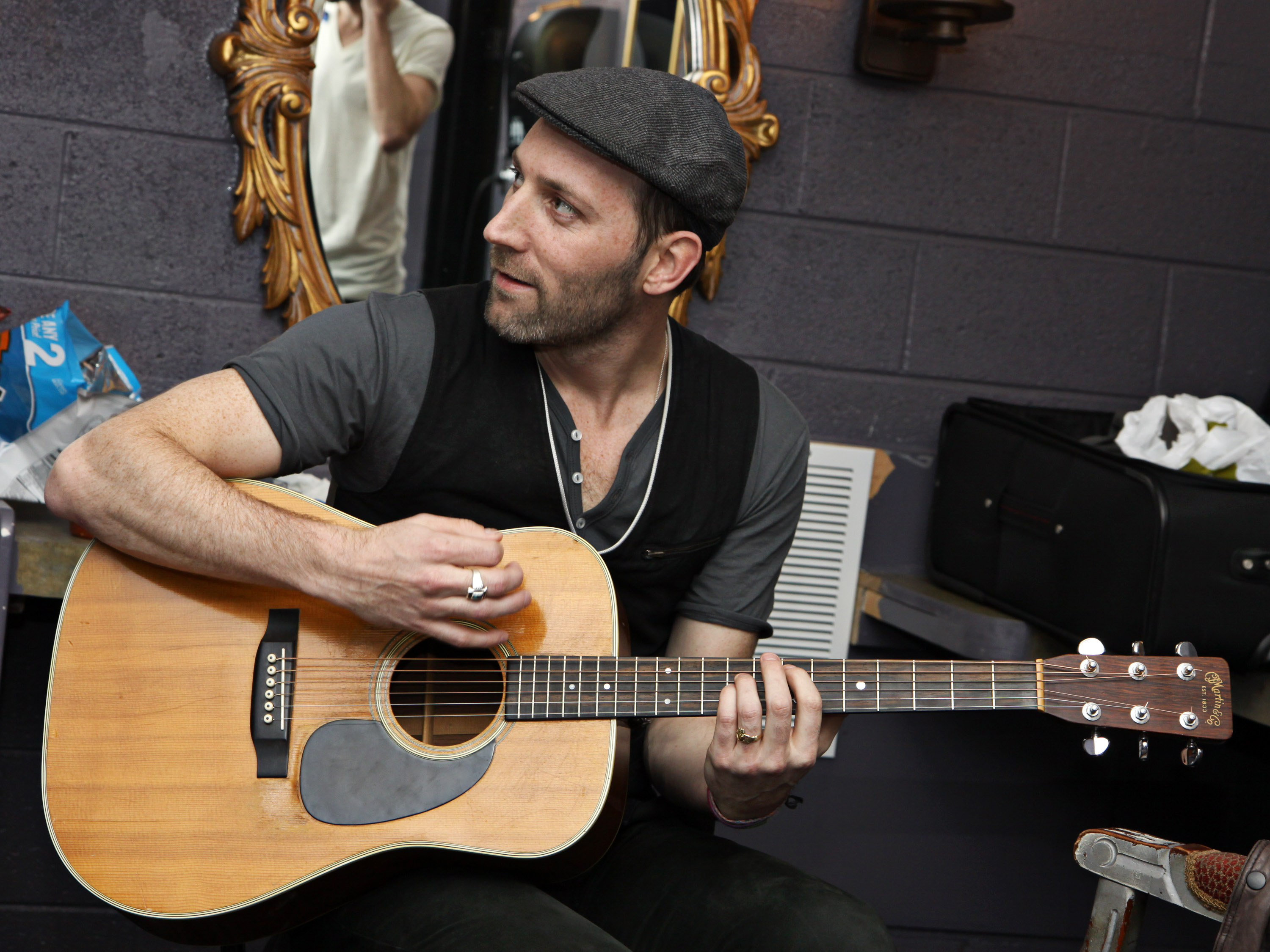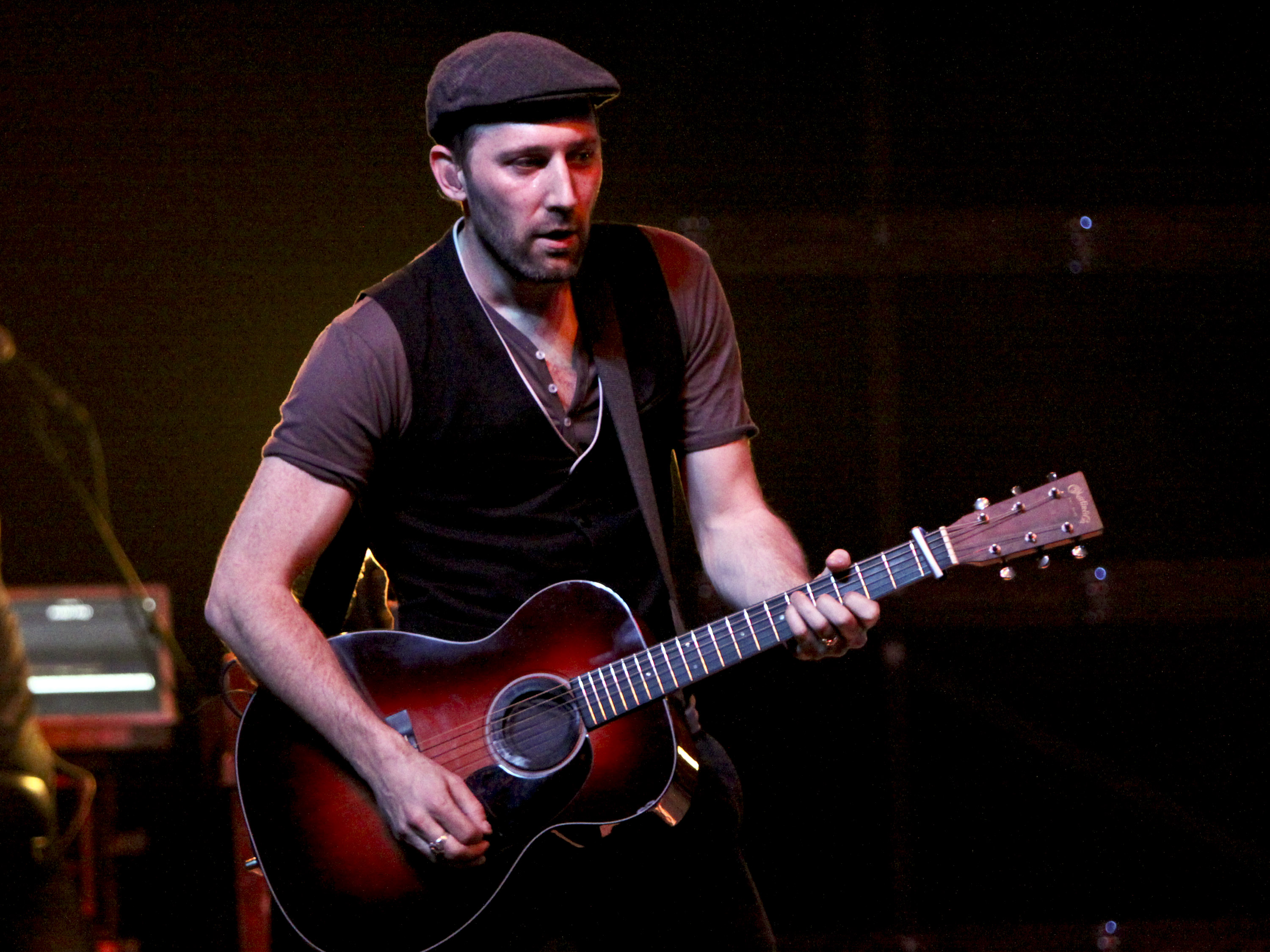
Mat Kearney's top 5 tips for acoustic guitarists
“Let the songs go where they must” - that was the agenda singer-songwriter Mat Kearney followed when recording his latest album, Just Kids, and just so he wouldn’t lose his way at any part in the journey, he taped a note with those words to a wall.
“I wanted to be brave and vulnerable,” Kearney says. “I didn’t want to overthink anything or talk myself out of trying stuff; like sampling weird codas from YouTube and sticking them at the ends of songs or taking a hip-hop beat and trying to write a Springsteen song to it - if it felt right, I went for it.”
Over the past decade, Kearney’s immensely appealing mash-up of hip-hop, electronica and folk-pop has won him a sizable audience, and on new tracks such a Heartbeat, he concocts a most intriguing blend of influences.
“That song harkens back to around 1990,” he says, “It’s Bruce Hornsby meets Cyndi Lauper, with a tiny bit of Bell Biv DeVoe thrown in. How’s that for diverse? I was trying to reference music from my childhood.”
Kearney wrote and recorded a good portion of Just Kids inside his tour bus, working with samples and loops. But the Martin and Gibson-loving tunesmith happily reports that all of the songs pass what he calls “the acoustic test.”
“I can sit down on the couch and play any one of these songs on an acoustic,” he says. “To me, that’s still the best way to know whether you’ve got a good song or not – one guitar, your words and your voice.”
On the following pages, Kearney runs down his top five tips for acoustic guitar players.

Learn to write songs
“All of my acoustic playing came from my songwriting. All of the chords I’ve learned and all of the voicings I play them in are a direct result of composing. The acoustic guitar is a vessel to support a song, so all of the time I’ve put into playing really stems from my desire to communicate something through a song.
“I’m not diminishing the act of playing, practising and wanting to get better as an instrumentalist; there’s tons of people who can say so much as soloists. But I guess I’m a songwriter first, so I’ve always liked coming up with material and figuring out what suits the mood I’m trying to evoke. For me, that means writing – and the playing supports that.”

Know your mics
“More than any other instrument, the relationship between an acoustic guitar and a microphone is super-important. The kind of mics that you use and your placement of the mics to the guitar can radically alter your sound.
“I use a lot of pencil-type mics. I have a pair of Telefunken mics that are really forgiving in how they render the sound. There’s always that fine line of ‘too much finger noise’ versus the compression you get when you play with a pick. The Telefunkens get things just right.
“A Shure SM58 sounds almost as good as anything else, and it’s not an expensive mic. You have to experiment and see what works for you. But don’t skimp and don’t settle. If you want to make good demos or master recordings, you really need to make sure your mic is as versatile as your guitar.”

Choose your guitar wisely
“You have to know what you want. Choosing an acoustic guitar for a live setting can be different from picking out one for recording. One doesn’t always work for the other. The sonic properties can be vastly different.
“I try to separate my crusty vintage guitars with a lot of character that sound great in the studio from the newer, more reliable guitars that I play on the road. The newer guitars that I use on stage stay in tune better, and the pickup systems are really well-made. I put a bunch of pickups in my older guitars, but I’ve never really been satisfied with the sounds I get.
“If you can find a great late 60s to early 70s Martin, you might be able to get the best of both worlds - something that records nice and sounds good on stage. You have to try out a bunch of things and shop around.”

Enjoy practising
“Like I said, everything is about writing. When I’m playing the acoustic, it usually means that I’m working on a song. But when I do sit down to just play, I’m probably trying to learn a riff to somebody else’s song. To me, that’s fun, so I get a lot of practice invisibly, because I’m not trying to practice – I’m just playing.
“I’ve never been one to learn scales and do exercises. Maybe I’m lazy, but I just don’t take to that kind of thing. Learning other people’s songs is enjoyable, and my fingers tend to go to new places because I’m not playing my music, the stuff that comes naturally to me. But I do think that this is a useful exercise, because I absorb somebody else’s style and bring it to whatever I’m writing.
“Whatever you do, try to make it fun. If practising is a chore, you’re going to look for ways to avoid it.”

Find a good luthier
“You need a good guy who can work on your guitars. Having the right person who knows the ins and outs of acoustic guitars - what issues you might have and how to resolve them - has been really invaluable to me.
“I had a bridge that popped off one of my Martins, and a guy I use in Nashville actually carved a new bridge for me that sounds even better than the original. I could’ve handed that guitar to somebody else, and he would’ve ruined it. So it’s really important to find the right person who understands the delicate sensibilities of acoustics.
“Ask around. If you know other acoustic players, find out who they use. You can’t always just go down to the electric guitar shop and expect that somebody who works on Flying Vs or whatever is going to know what to do with your 40-year-old acoustic. Do a little homework and locate the right person.”
Joe is a freelance journalist who has, over the past few decades, interviewed hundreds of guitarists for Guitar World, Guitar Player, MusicRadar and Classic Rock. He is also a former editor of Guitar World, contributing writer for Guitar Aficionado and VP of A&R for Island Records. He’s an enthusiastic guitarist, but he’s nowhere near the likes of the people he interviews. Surprisingly, his skills are more suited to the drums. If you need a drummer for your Beatles tribute band, look him up.
